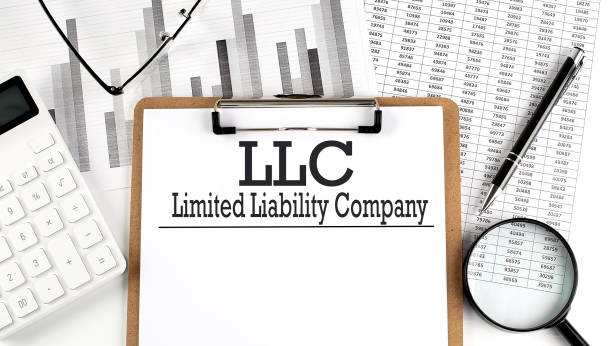How to Start Rental Property Business?
Starting a rental property business can be lucrative, providing a steady stream of income and potential long-term wealth. Whether you’re looking to invest in residential or commercial properties, the following steps will guide you through how to start a rental property business.
Research the Rental Market and Identify Potential Properties:
Before diving into the rental property business, thoroughly research the rental market in your desired location. Identify areas with high demand for rental properties, low vacancy rates, and strong rental income potential. Consider factors such as population growth, job opportunities, proximity to amenities, and rental rates. This research will help you make informed decisions when selecting properties and maximize your chances of success.
Create a Business Plan to Outline Your Goals, Resources, Budget, and Timeline:
A well-crafted business plan, including a rental property business, is essential for any entrepreneurial endeavor. It serves as a roadmap, guiding your decisions and actions. Outline your business goals, target market, investment strategy, and financial projections.
Determine your available resources, including capital, financing options, and partnerships. Establish a budget encompassing property acquisition costs, ongoing expenses, and contingencies. Set a timeline for achieving key milestones, such as property acquisition, tenant occupancy, and financial targets.
Secure Financing for Your Rental Property Investments:
Without significant personal funds, securing financing is often necessary to acquire rental properties—research financing options such as mortgages, loans, partnerships, or crowdfunding platforms. Compare interest rates, terms, and repayment options to find your business’s most suitable financing solution.
Prepare your financial documents, including credit history, income statements, and property analysis, to demonstrate your eligibility to lenders. Consult with financial advisors or mortgage brokers to navigate the lending process effectively.
Find the Right Property to Purchase or Lease:
Once you have secured financing, it’s time to find suitable rental properties to invest in. Consider your target market and investment strategy when searching for properties. Conduct thorough property inspections, assessing location, condition, amenities, and potential rental income.
Evaluate the property’s potential for appreciation and assess the risks involved. Compare prices, negotiate offers, and perform due diligence, including title searches, property surveys, and environmental assessments. Aim to acquire properties with strong rental demand and the potential for value appreciation.
Develop an Effective Marketing Strategy to Attract Tenants:

You must attract and retain quality tenants to ensure maximum occupancy and rental income. Develop a comprehensive marketing strategy to promote your rental properties effectively.
Utilize online platforms, social media, and real estate investor websites to showcase your properties with compelling descriptions, high-quality images, and virtual tours. Implement search engine optimization techniques to increase visibility in online searches.
Leverage traditional marketing methods such as signage, local advertisements, and networking events. Highlight key features, amenities, and benefits to appeal to your target tenant demographic.
Set Up Tenant Screening Procedures and Create a Lease Agreement:
Screening prospective tenants is crucial to ensure reliable, responsible occupants in your rental properties. Establish tenant screening procedures that include background checks, credit assessments, employment verification, and reference checks. This helps minimize the risk of down payment, property damage, or eviction. Create a comprehensive lease agreement outlining the terms and conditions, rental rates, security deposit requirements, maintenance responsibilities, and lease duration. Ensure that your lease agreement complies with local landlord-tenant laws and regulations.
Establish Rules and Regulations for Tenants following Local Laws:
Establishing clear rules and regulations for your tenants is essential to maintain a harmonious and compliant rental property environment. Familiarize yourself with local landlord-tenant laws, fair housing regulations, and property maintenance standards. Create policies regarding rent collection, late fees, maintenance requests, property inspections, noise regulations, and tenant rights and responsibilities. Communicate these policies to your tenants through the lease agreement and provide them with a copy for reference. Be responsive to tenant inquiries and concerns, promptly addressing maintenance issues and maintaining a positive landlord-tenant relationship.
Manage Daily Operations:
As a rental property business owner, you’ll be responsible for managing the day-to-day operations of your properties. This includes collecting rent payments from tenants through online platforms or in-person methods and maintaining accurate financial records. Implement a system for tracking rental income, expenses, and property maintenance costs to ensure proper accounting and tax compliance.
Establish a streamlined process for handling maintenance requests from tenants. Promptly address any repairs or issues to maintain tenant satisfaction and protect the value of your investment. Develop relationships with reliable contractors and service providers to assist with maintenance and repairs as needed.
Analyze Data Regularly to Ensure That You Are Maximizing Profits from Your Rental Property Business:

Regularly analyzing key performance indicators (KPIs) is essential for optimizing your rental property business. Monitor occupancy rates, rental income, expenses, and cash flow metrics. Compare your financial performance against your projected goals and make adjustments as necessary.
Identify trends and patterns to inform future investment decisions and strategies. Consider leveraging property management software or tools that provide comprehensive data analytics to streamline this process.
Continuously educate yourself on market trends, rental regulations, and best practices in property management. Attend industry conferences, workshops, and webinars to stay updated and network with other professionals in the field. Seek advice from experienced real estate business rental property investors or a property manager who can provide valuable insights and guidance.
Conclusion:
Starting a rental property business requires careful planning, market research, and effective management. By following the steps outlined above, you can establish a solid foundation for your business and maximize your chances of success. Remember to conduct thorough due diligence, create a comprehensive rental property business plan, secure financing, and develop effective marketing and management strategies. Stay informed about local rental laws, maintain strong tenant relationships, and regularly analyze your financial performance to optimize your rental property business bank account.
FAQs:
Do I need prior experience in real estate to start a rental property business?
While prior experience in real estate investing can be beneficial, starting an investment property business is not required. Conducting thorough research, seeking advice from industry professionals, and educating yourself about the rental market can help you navigate the process successfully.
How do I determine the rental rates for my properties?
Rental rates depend on various factors, including the property’s location, size, amenities, and market demand. Research similar properties in your area, analyze rental listings and consider consulting with local real estate investor clubs or property managers to determine competitive rental rates.
Should I consider hiring a property management company?
Hiring a property management company can be a viable option, especially if you have limited time or expertise in property management. A property management company can handle day-to-day operations, tenant screening, rent collection, and maintenance, allowing you to focus on other business expenses.




